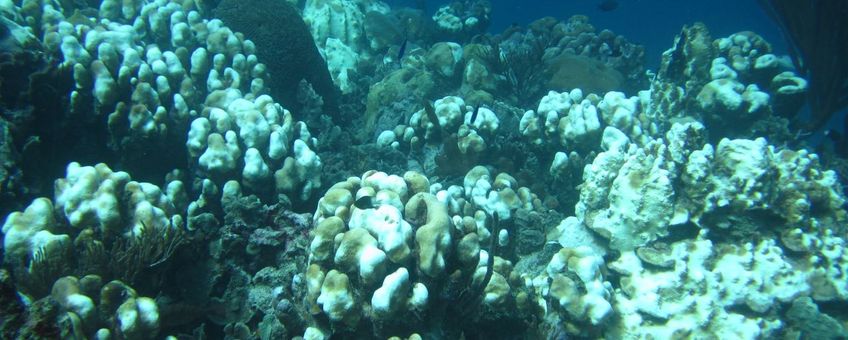
Global coral bleaching event underway
Dutch Caribbean Nature Alliance (DCNA)The recurrence of bleaching events with such intensity and frequency underscores the ongoing challenge of climate change and its impact on marine biodiversity in the (Dutch) Caribbean and beyond.
Understanding coral bleaching
Coral bleaching is a phenomenon that affects marine ecosystems worldwide, driven by stressors such as temperature fluctuations, light variations, or changes in nutrient levels. Under these extreme conditions, corals expel the symbiotic algae living within their tissues, leading to a loss of color and vitality. While bleached coral is not an immediate fatality, it becomes more susceptible to mortality under heightened and prolonged stress.
Last year's bleaching event compared to this year
In previous years, coral reefs experienced significant bleaching due to unusually high ocean temperatures. This year, the situation appears to be made worse, with even higher temperatures recorded, suggesting a potentially more severe impact on coral health and greater expansive bleaching events. The current temperature stress is already underway, earlier than usual, even though some corals have not completely recovered from last year’s event.
Protective measures in place
Despite the challenges posed by climate change, conservation efforts offer a glimmer of hope. Various organizations across the Dutch Caribbean are dedicated to safeguarding coral reefs through protected area management, research, conservation, education and restoration initiatives. The combined efforts of conservationists, policymakers, scientists, and local communities play a crucial role in preserving these fragile ecosystems.
Addressing local threats and promoting resilience
In addition to global climate change, local factors such as unregulated coastal development, inadequate waste management and invasive species contribute to coral reef degradation. Also, insufficient sustainable funding hampers conservation management. Tackling these issues, alongside reef protection and restoration efforts, is essential for enhancing the resilience of coral ecosystems against stressors such as future bleaching events.
Understanding the value of coral reefs
Coral reefs provide invaluable services to both marine life and human communities. They act as natural barriers, protecting coastlines from erosion and storm damage, while also supporting fisheries and tourism sectors vital to the Dutch Caribbean's economy and well-being.
In conclusion
The ongoing coral bleaching event serves as a stark reminder of the urgent need to address climate change and its impact on marine ecosystems. Through collective action and sustainable practices, we can work towards preserving these valuable coral reefs for generations to come.
More information
- The Dutch Caribbean Nature Alliance (DCNA) supports (science) communication and outreach in the Dutch Caribbean region by making nature related scientific information more widely available through, amongst others, the Dutch Caribbean Biodiversity Database, DCNA’s news platform BioNews, and the press.
- Explore volunteer opportunities and find contact details to get involved.
- This article contains the results from several (scientific) projects but the projects themselves are not DCNA projects. No rights can be derived from the content. DCNA is not liable for the content and the (in)direct impacts resulting from publishing this article.
Text: Dutch Caribbean Nature Alliance
Photo's: Mark Vermeij, CARMABI



